Are you tired of using the same old vanilla extract in your recipes? Looking to add a touch of innovation to your culinary creations? Then you’ve come to the right place.
In this article, we’ll explore the battle between vanilla bean vs. vanilla extract. Discover the unique flavor profiles, culinary uses, and fragrant aromas of both options. Plus, we’ll delve into shelf life, storage, and cost comparisons.
Get ready to elevate your dishes with a dash of innovation!
Flavor Profile of Vanilla Bean vs. Vanilla Extract
You’ll be pleased to know that there are various flavor profiles to choose from when it comes to vanilla bean vs. vanilla extract.
If you’re someone who desires innovation in your culinary creations, then exploring these flavor profiles will surely elevate your dishes to a whole new level.
Vanilla beans offer a rich, complex flavor with hints of floral and fruity notes. The tiny black seeds in the bean add a delightful texture to your desserts.
On the other hand, vanilla extract provides a more concentrated flavor with a slightly sweet and creamy taste. It’s perfect for those who prefer a stronger vanilla presence in their recipes.
Culinary Uses
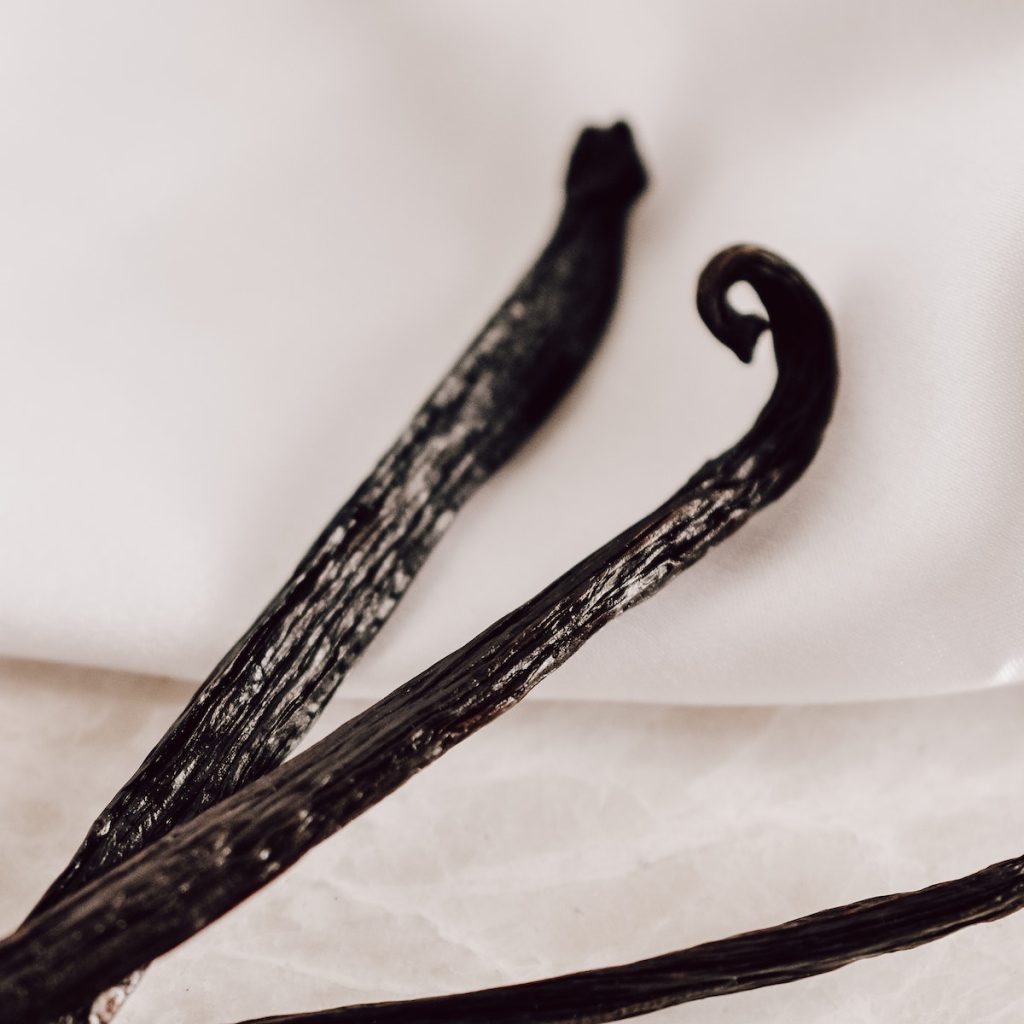
Sometimes, you can use vanilla bean and vanilla extract interchangeably in your recipes to bring a burst of flavor.
The culinary uses of vanilla bean vs. vanilla extract are vast and exciting, allowing you to explore new and innovative ways to add a touch of sweetness to your dishes.
Vanilla extract is commonly used in baking, where its concentrated flavor infuses into cakes, cookies, and pastries.
On the other hand, vanilla beans are perfect for creating homemade vanilla-infused sauces, custards, and ice creams.
You can also scrape out the tiny seeds from the vanilla bean and incorporate them into desserts, beverages, or even savory dishes like seafood or roasted vegetables to elevate their taste.
With these versatile ingredients, your culinary creations will never be the same. So go ahead, experiment, and enjoy the endless possibilities that vanilla extract and vanilla bean bring to your kitchen.
Aroma and Fragrance
To fully understand the difference between vanilla bean vs. vanilla extract, let’s explore their aroma and fragrance.
When it comes to aroma, vanilla beans offer a rich and intense scent that fills the air with warmth and sweetness. The fragrance of vanilla extract, on the other hand, is more subtle yet still captivating. It has a smooth and creamy aroma that adds depth to any dish or dessert.
Both vanilla extract and vanilla bean bring a unique and enticing fragrance to your culinary creations. However, if you want to elevate your dishes with a bolder and more pronounced aroma, using vanilla beans is the way to go. Their natural essence infuses your recipes with an innovative and irresistible scent that will leave your taste buds craving for more.
Shelf Life and Storage
If you want to maximize the shelf life of your vanilla bean vs. vanilla extract, proper storage is vital.
When it comes to vanilla beans, store them in a tight container in a cool, dark place. This will help keep their flavor and aroma for up to two years. Avoid storing them in the fridge, as moisture can cause them to mold.
As for vanilla extract, keep it tightly sealed and store it in a cool, dark pantry or cupboard. The alcohol content in the extract acts as a preservative, allowing it to last for an impressive four to five years.
Cost Comparison
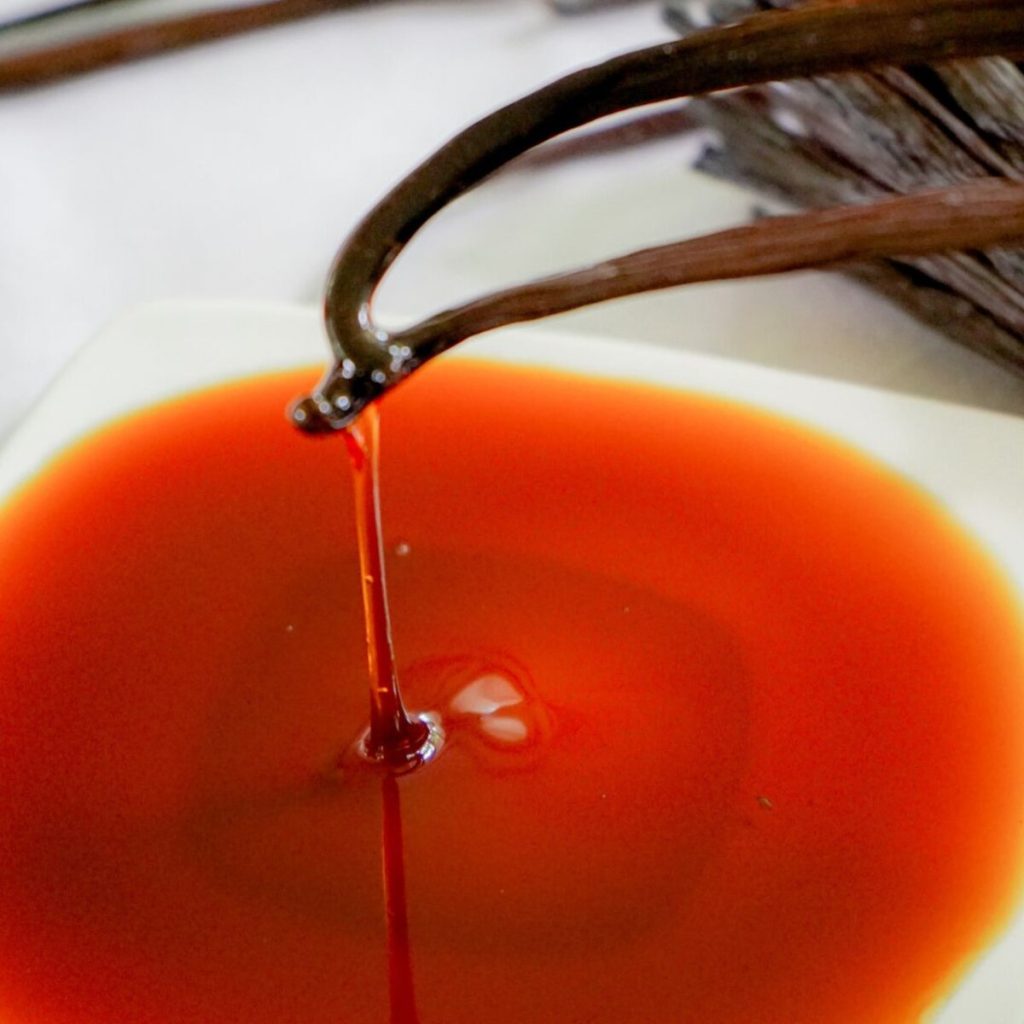
When comparing the cost of vanilla bean vs. vanilla extract, you’ll find that the former tends to be more expensive. However, if you’re someone who desires innovation in your culinary creations, the extra cost of vanilla beans may be well worth it.
Vanilla beans offer a unique and complex flavor profile that’s difficult to replicate with vanilla extract alone. By using whole vanilla beans, you can infuse your dishes with the rich and aromatic qualities that only real vanilla can provide.
While vanilla extract may be more cost-effective in quantity, investing in high-quality vanilla beans can elevate your dishes to a whole new level of culinary excellence.


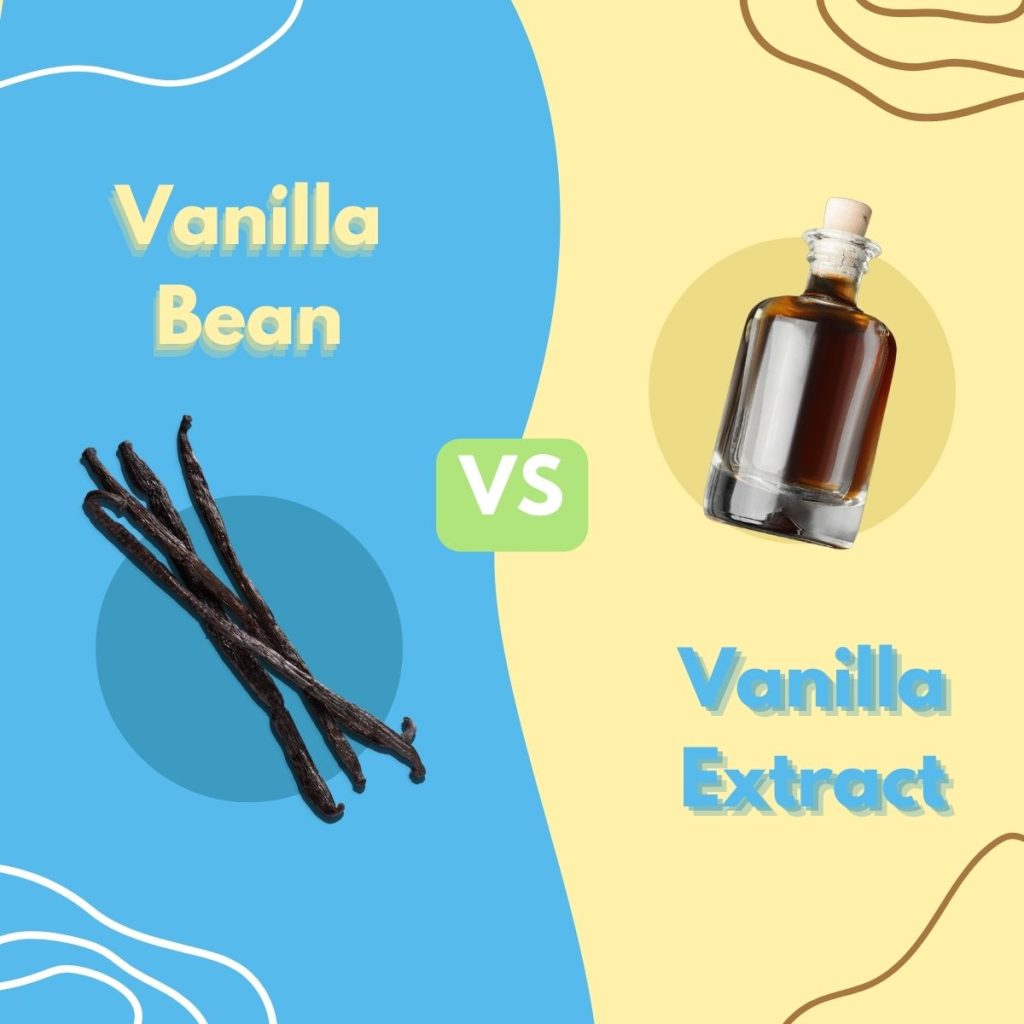


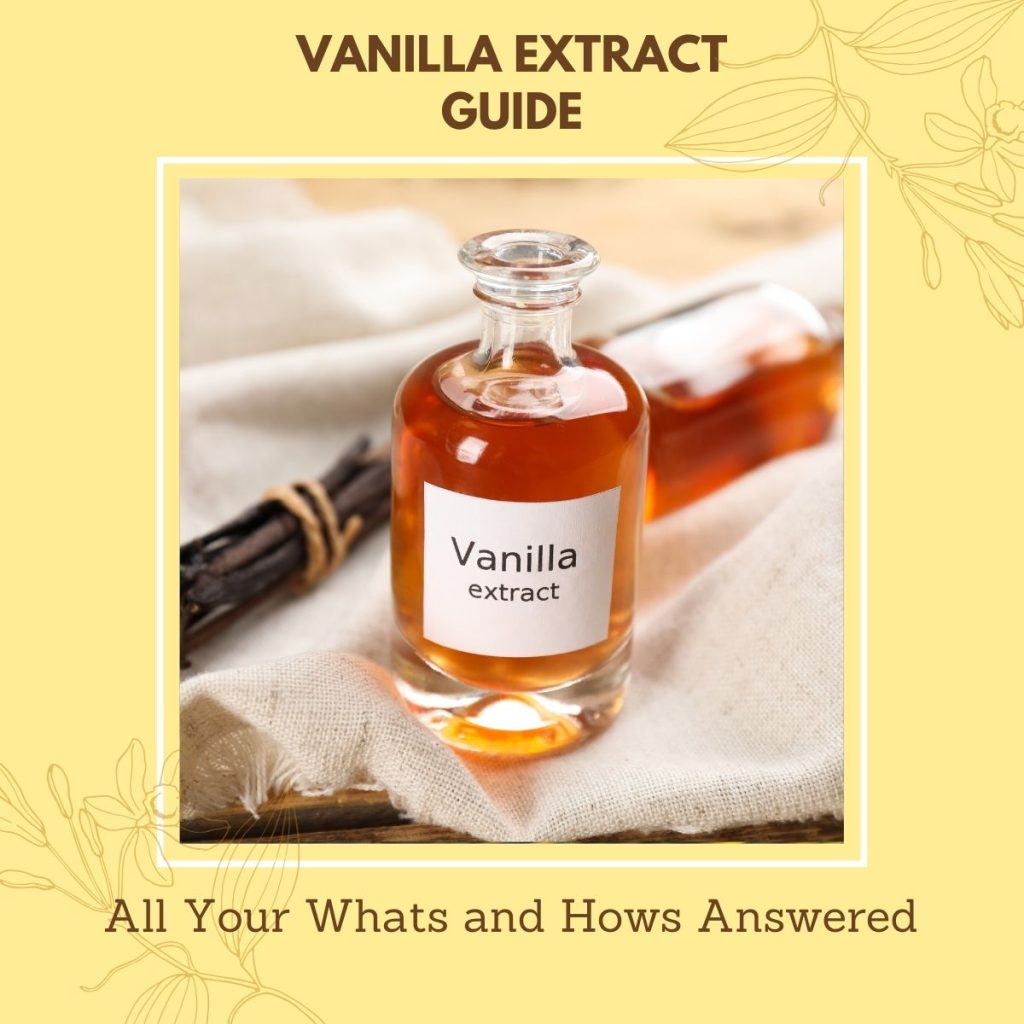
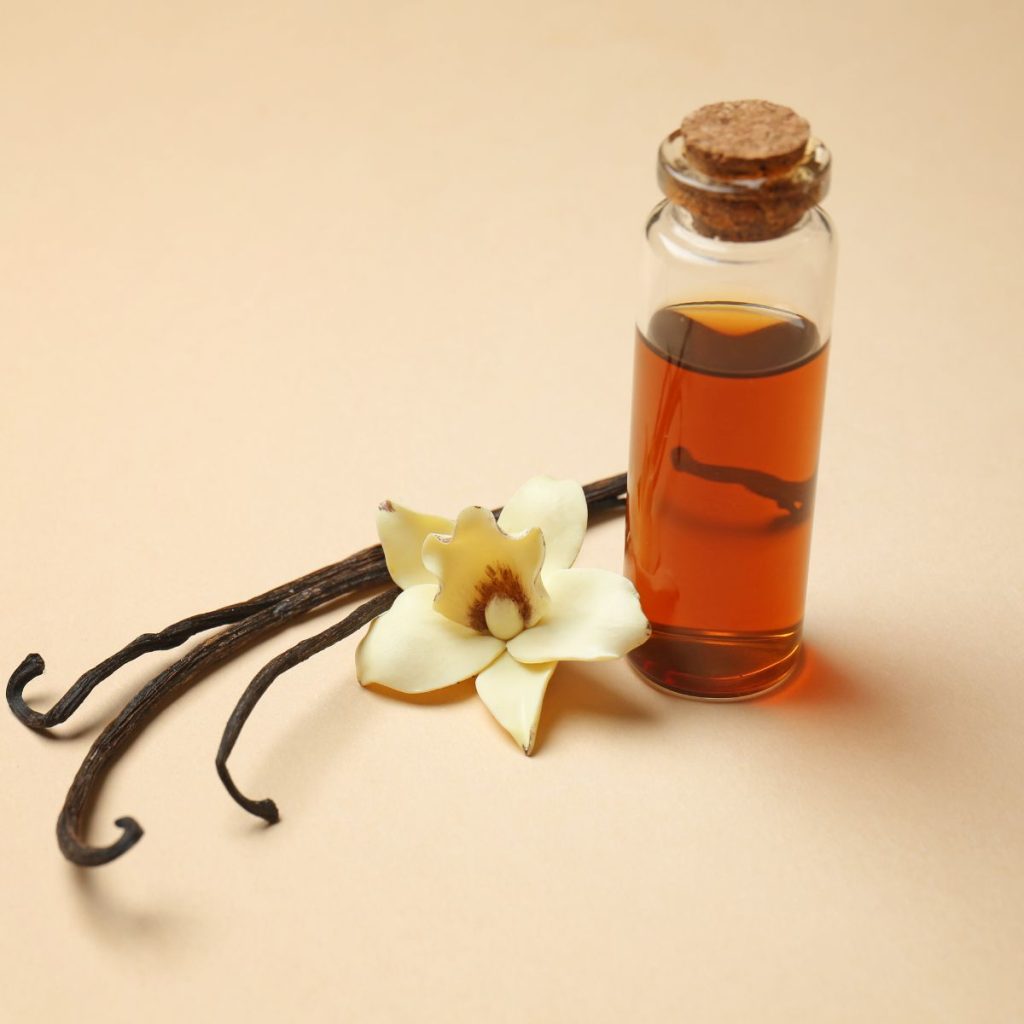

Konnichiwa! (Hello!) I'm Pat Tokuyama, a Japanese tofu cookbook author, who travels for music, food, and adventure. If you like Japanese tea, checkout some of the newestorganic japanese tea, matcha bowls and noren and more!
** Curious about the Plant Based Japanese Cooking Club? ** Learn more here!